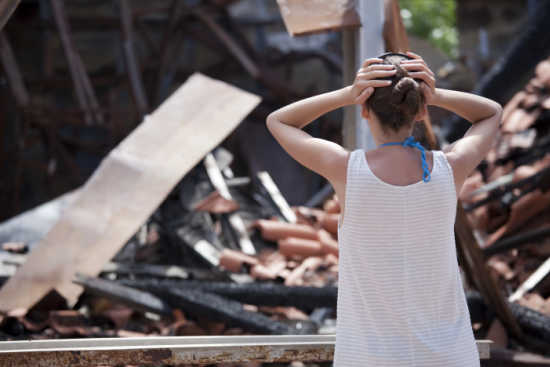As Louisiana begins the cleanup from the mess Hurricane Ida caused, many residents are wondering if they will even have a home to go back to. The governor has urged all evacuees not to come back, but many are at a point where they can no longer afford to stay away from home.
When disaster strikes, it is the uncertainty that is the most difficult thing to come to terms with. There is no concrete plan, just a hope that there is something to return to and something that can be salvaged. But, if you have to evacuate, where should you go? How far should go away from your home? The further, the more uncertain, the closer, the more dangerous.
WHERE AND HOW FAR TO EVACUATE
FEMA recommends that a safe evacuation route from a hurricane should take you 20-50 miles inland. For many Louisiana residents, they went to neighboring states to sit the storm out. Now that state officials are estimating that power will not be restored for weeks, and have said there will be continued gas and supply disruptions, many people are beginning to realize that this is a longer-term situation.
Think about the amount of money it would take to live in a hotel and eat out for two weeks or even a full month. In an article on the subject published by NPR, a seven-day evacuation could cost $2,000!
“For a family of four without nearby relatives, a seven-day evacuation — including hotel, fuel, and food — can cost upward of $2,000″, said Joshua Behr, whose research team at Virginia’s Old Dominion University has surveyed thousands of people since 2011, when Hurricane Irene threatened the state’s southeast coast. “Many modest- to low-income households simply don’t have the cash or credit,” he said. “When they return home they have difficulty paying the rent or mortgage. Those with the fewest means often wait the longest to evacuate. By the time they do, the cheapest hotel rooms are gone, and the more expensive ones are even farther away.”
Prepare by having an emergency fund. Having some funds set aside for a rainy day can make all the difference if you have to evacuate. For more information, please click on the link below:
Learn how to create an emergency fund here.
WHEN EVACUATING:
- If possible, evacuate to the home of either friends or family in a non-vulnerable area within your county or parish.
- Next, try a hotel. Some hotels have special evacuation rates. Check with the hotels before booking a room. Some hotels have even waived room fees for evacuees like this Austin-based hotel.
- Air BnB rentals are a great way to lock in short-term housing during evacuations. In 2012, Airbnb launched Open Homes, a disaster relief program that encourages Airbnb hosts to provide free temporary shelter for those affected by natural disasters, and the program is still operational. These can go fast, so keep in mind that time is of the essence.
- As a last result, go to a public shelter. Remember, shelters are not designed for comfort and do not usually accept pets.
- Temporary housing should be considered by city and state evacuation plans. Cities that are more likely to take in evacuees—those that are near climate-vulnerable areas and offer housing and other infrastructure that could support an influx of hundreds of people—should consider how to shelter and integrate the potential climate displaced before an extreme weather event occurs.
Disaster can strike at any time, but having a plan complete with an emergency fund can help you stave off the worst of any crisis. Nothing you do to prepare in advance will make anything worse, so take the time to get plans in place and learn how to save up for any potential emergency.
This article was originally published at Ready Nutrition™ on September 2nd, 2021








I just got home from a 2 week evacuation due to fire. The money they are talking about is pretty close to true. motel rooms at 120.00 a day plus food for a family of 4 at about 60-80 a day if you eat cheap. Try and get a room that at least has a small fridge and microwave so you can at least do some frozen meals like hot pockets or lasagna and maybe some instant oatmeal for breakfast. not the greatest thing to eat for sure but if its only a couple of weeks you can get by. having a well funded emergency fund this was really more of an inconvenience to us than a problem so get some money put aside. Even if you can only put up a few dollars a week some is still a cushion against the disaster
I have trouble swallowing the Airbnb recommendation after they announced their plans to house Afghan refugees. My problem is their obvious interest in getting those big government bucks, not the housing of refugees.
unless the FEMA types have changed direction – again – they started to allow caged & leashed pets into the shelters ….
after the Katrina stray pet fiasco, they changed their minds – people had only relocated a few days and received a call to return for a pet retrieval – total freaking chaos for the lack of some common sense ….